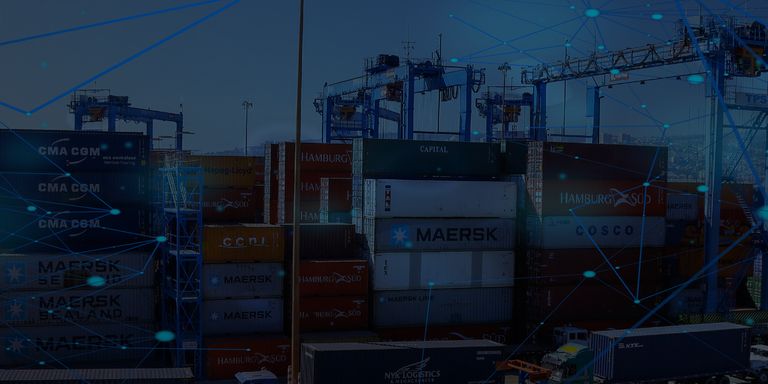INTAL’s agenda promotes the economic, digital, and political integration of Latin American and the Caribbean and focuses on the following areas:
- Creating and publicizing content on integration processes, foreign direct investment, and trade-in services.
- Developing technologies and platforms that foster exchanges of ideas and trade between public and private stakeholders from Latin America and the Caribbean and provide open access to major databases on regional integration.
- Strengthening institutional capacities in the public and private sectors through high-level training programs and communities of practice.
- Promoting strategic dialogues to build cooperation between IDB member countries.
- Providing advisory services and technical, financial, and operational support for region-wide integration policies and initiatives.
INTAL was created in 1965 thanks to decisive support from the countries in the region, which gave it the difficult mission of articulating the integration effort for Latin America and the Caribbean. At that time, discussions in the region were taking place in an international context marked by the Cold War, the difficulty of consolidating democratic regimes, the beginnings of social upheaval, and a trade system that was seeking to pave a way forward by means of new institutions and rules of play.
The challenges of adding value to exports, improving the terms of trade, incorporating industrialization strategies, reaching equilibrium in the balance of payments, and achieving diversified global integration with social inclusion were defined within the public agenda in fairly similar terms to those we use today.
The desire for integration had been expressed through the Latin American Free Trade Association (ALALC) and the Central American Common Market, but it still was far from being a political, economic, and social force capable of overcoming the obstacles of the times. National economies functioned as watertight compartments that were walled off by high customs barriers. In this context, the first president of the IDB, Felipe Herrera, made numerous presentations that helped consolidate the idea that the IDB should play an important role in Latin America’s economic integration.
At INTAL’s inaugural ceremony, in the company of the president of Argentina of the time, Arturo Illia, Felipe Herrera said: “In each of our countries, associations and groups are emerging today with the aim of promoting economic and political integration, just like the societies and organizations in colonial Spanish America that incubated new ideas and nurtured the message of emancipation. INTAL is a product of these new motivations and therefore its task is two-fold. Its role is to study the problematic aspects of integration objectively and research into ways and means of solving them. But at the same time, it must serve as a meeting place for those Latin Americans who, in different areas of activity, are part of the quest for procedures that will enable us to build our community of nations rapidly. Although you are part of a technical body, your work will imply great commitment, because it is academic work at the service of a cause: the cause of Latin America.”
INTAL has been led by a series of expert minds who were fiercely committed to regional integration. Its first director was Gustavo Lagos. He was succeeded in 1969 by Felipe Tami, who held office until 1971. Tami was followed by Alberto Calvo (1971–1973), Julio Rodríguez Arias (1973–1975), Felix Peña (1975–1977), and Eduardo Conesa (1977–1984).
From 1984 to 1988, Juan María Vacchino was director of INTAL. Eduardo Zalduendo continued in the position until 1991, when José María Puppo took over as interim director.
Juan José Taccone was named director of INTAL in 1996 and held the position until 2005. He was succeeded by Ricardo Carciofi, who served until 2013, when Graciela Schamis took over.
From 2014 to February 2019, INTAL was led by Gustavo Beliz. In 2020 Pablo García took office and, since the end of 2021, Ana Basco is the current director of INTAL.
| 2023 | 2022 | 2021 | 2018 |
| 2017 | 2016 | 2015 | 2014 |
| 2013 | 2012 | 2011 | 2010 |
| 2009 | 2008 | 2007 | 2006 |
| 2005 | 2004 | 2003 | 2002 |
| 2001 | 2000 | 1999 | 1998 |
| Name | Position |
| Basco, Ana Ines | Director |
| Abeledo, Ximena | Consultant |
| Amigo, Huilen | Consultant |
| Aruguete, Sofía | Consultant |
| Barafani, Magdalena | Consultant |
| Benítez, Andrea Verónica | Consultant |
| De Angelis, Jesica | Consultant |
| Estévez, Ignacio Manuel | Senior Integracion & Trade Associate |
| Freytag, Verónica | Finance Administrative Coordinator |
| Mazzella, Federico | Consultant |
| Merino, Florencia | Consultant |
| Michalczewsk, Kathia | Consultant |
| Radl, Alejandra | Senior Integration & Trade Associate |
| Rozemberg Ricardo | Senior Integration & Trade Associate |
| Sternberg, Sofía | Consultant |
| Toscani, Verónica | Integration & Trade - Sr. Analyst |
| Schvartz, Eliel | Consultant |
| Iannuzzi, Patricia Estefania | Consultant |
| Natale, Diego Ángel | Consultant |
Discover the topics in which we work to improve lives in Latin America and the Caribbean.
Explore our offices across countries and the work they do to improve lives.

